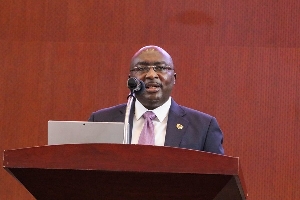Crime & Punishment of Friday, 24 May 2013
Source: Citi FM
The death penalty is barbaric - Amnesty International
The Executive Director of Amnesty International, Lawrence Amesu, has described the death penalty, a form of capital punishment which is still in Ghana’s statute books, as inhumane.
“It is important for us to know that the death penalty in itself is a very barbaric way of punishment,” he said.
According to him, although Ghana has not enforced the death penalty in a long time it still needs to abolish it from the statute books.
Speaking on Citi FM’s Eyewitness News program, Mr Amesu indicated that “the death penalty is an entrenched clause in the constitution” which needs to be abolished.
According to him, “we are no more in the era of a tooth for a tooth and an eye for an eye.”
He stated that “it is the duty of Amnesty International as a civil society including the media and every human right activist to lobby the implementation committee to take the death penalty clause out of our constitution".
He cautioned that because “Ghana has a very high record of human rights, we should not continue to dent this record by maintaining the death penalty in our constitution".
He said that Amnesty International is against armed robbery and anyone taking the lives of another person.
“We believe that nobody should take another person’s life under any circumstance” and “when someone takes another person’s life, the remedy should not be taking another person’s life” he said.
He however congratulated government for not implementing the penalty clause so far.
“I think that we should congratulate ourselves as Ghanaians that we are moving towards that direction because as of now we are aware that the constitutional review commission and the government accepted our recommendation stating that we cannot toil with lives which is a very important thing” he added.
He also called for speedy trials for remand prisoners who never have their day in court.
By Winnifred K. Ndamse










